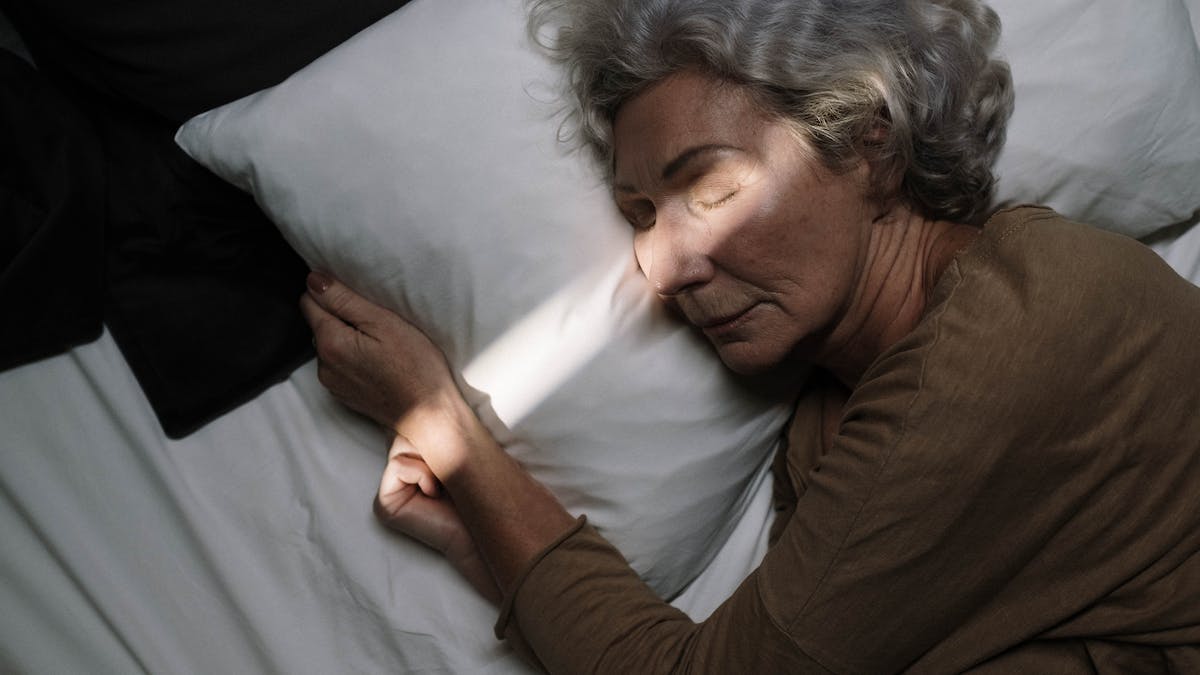
How Dementia Impacts Sleep: What You Need to Know
A good night’s rest is essential at any age. However, it can be challenging for seniors with dementia to catch enough Zzz’s. Declining cognition can impact memory, problem-solving, language, and other essential skills. Surprisingly, dementia may also affect your sleep.
When an older adult has dementia, they and the ones who care for them must understand how the disease impacts sleep. Keep reading to learn everything you need to know about dementia and its effects on slumber.
Why Does Dementia Impact Sleep?
Our circadian rhythms govern our sleep cycle. This collection of psychological and physical processes dictates our sleep-wake patterns. Unfortunately, people with dementia can experience changes to their circadian rhythms. That’s because dementia and Alzheimer’s impact the part of the brain known as the suprachiasmatic nucleus (SCN), an internal clock that helps us wake up and sleep. A damaged SCN can disrupt the natural sleep-wake cycle, causing seniors to feel groggy and tired during the day.
Additionally, dementia can affect an older adult’s sleep structure, the natural progression our bodies go through as we sleep. A typical sleep structure starts in light sleep (stages one and two), then gradually progresses to deep sleep (stages three or slow-wave sleep) before entering the dream, or REM, sleep stage.
Seniors with dementia might spend less time in slow-wave and dream sleep stages, getting stuck in the earlier stages of sleep and negatively affecting the quality of sleep.
Sleep Disorders in Seniors with Dementia
In addition to impacting seniors’ circadian rhythm and sleep structure, dementia can also cause the following disorders:
- Periodic limb movement disorder (PLMD): These are uncontrollable movements of your limbs at night.
- Restless leg syndrome (RLS): This disorder causes an overwhelming temptation to move your legs at night.
- REM sleep behavior disorder: This causes older adults to act out while dreaming, sometimes in risky ways.
- Obstructive sleep apnea (OSA): This condition affects your ability to breathe while sleeping. OSA is a common sleep condition in seniors with Alzheimer’s, occurring in about 40% of older adults with the disease.
If you or a loved one is experiencing any of these disorders, it’s essential to talk to a healthcare professional.
The Benefits of Quality Sleep for a Senior’s Well-Being
Getting enough rest is crucial for maintaining good physical and mental health, especially for seniors. When seniors prioritize their sleep, they can experience improved mood, lower blood pressure, a healthier heart, weight management, better blood sugar regulation, and a reduced risk of strokes and kidney diseases.
A good night's sleep can also enhance seniors' reaction time and cognitive abilities, allowing them to stay alert and focused throughout the day. By prioritizing rest, seniors can reduce their risk of accidents and injuries and enjoy all the benefits of a healthy lifestyle.
Dementia Care Services to Keep Your Loved Ones Comfortable
Do you or a loved one have dementia? If so, you may need home care services to stay safe and comfortable. Visiting Angels of San Luis Obispo, CA, provides dementia care services to seniors throughout the county. Our non-medical solutions can keep seniors safe by preventing them from wandering, reminding them to take their medications, and providing secure transportation to doctor’s appointments.
Are you wondering if dementia care services are right for you? Contact us today at (805) 546-2080 for more information.

